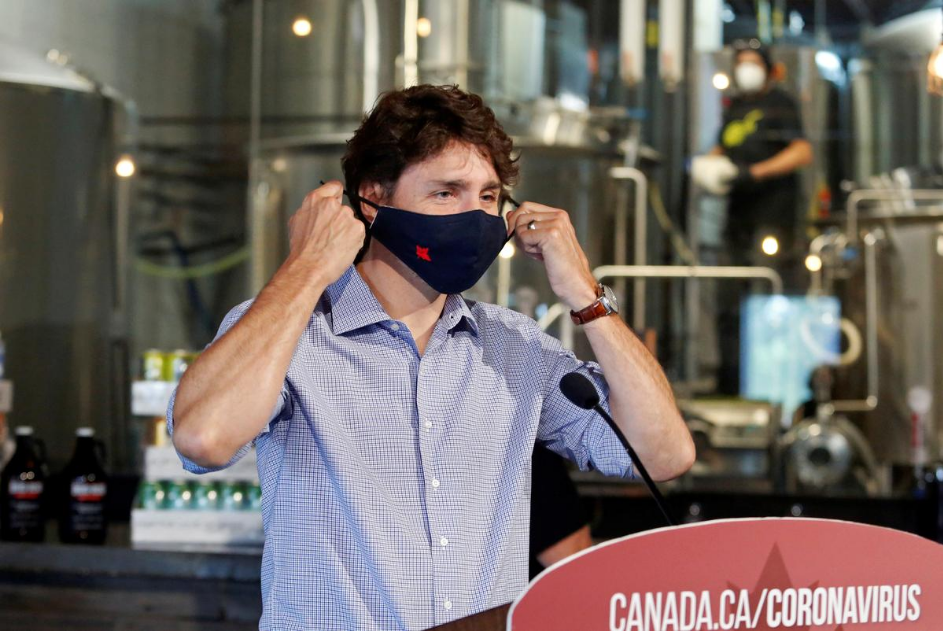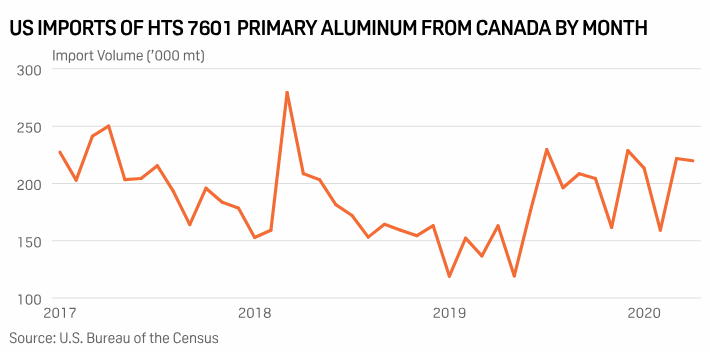
Canada's Prime Minister Justin Trudeau removes his face mask as he visits the Big Rig Brewery during the coronavirus pandemic, in Kanata, Ontario, Canada, June 26, 2020. /Reuters
Canada's Prime Minister Justin Trudeau removes his face mask as he visits the Big Rig Brewery during the coronavirus pandemic, in Kanata, Ontario, Canada, June 26, 2020. /Reuters
Canadian Prime Minister Justin Trudeau said on Friday he was still unsure whether he would go to Washington D.C. next week to celebrate a new North American trade treaty, citing concern about possible U.S. tariffs on aluminum.
Mexico's President Andres Manuel Lopez Obrador, who is due to meet U.S. President Donald Trump next week, has said he would like Trudeau to attend.
"We're still in discussions with the Americans about whether a trilateral summit next week makes sense," Trudeau said in a news conference. "We're obviously concerned about the proposed issue of tariffs on aluminum and steel that the Americans have floated recently."
The Trump administration has reportedly been weighing reimposing tariffs on Canadian aluminum over concerns about rising exports to the United States.
"We have heard the musings and proposals from the United States that perhaps there needs to be more tariffs on aluminum," Trudeau said during a press conference with reporters on June 29. "What we simply highlight is the United States needs Canadian aluminum."
Concern about the "health situation and the coronavirus reality that is still hitting all three of our countries" is another factor in his decision on whether to go to Washington, Trudeau said.
The spread of the novel coronavirus has slowed steadily in Canada over the past eight weeks, but new cases are spiking in many U.S. states.
As of June 2, Canada had recorded a total of 104,772 coronavirus cases, with 68,345 recovered and 8,642 deaths.

A major irritant
U.S. national security tariffs on imported steel and aluminum – including from Canada and Mexico – were a major irritant during negotiations for the United States-Mexico-Canada trade deal (USMCA).
The Trump administration has reached an agreement to exempt Canada from the 10 percent tariffs on primary aluminum imports, along with 25 percent tariffs on steel imports, in 2019.
However, the American Primary Aluminum Association (APAA) has called to restore tariffs on Canada. U.S. Trade Representative Robert Lighthizer is considering answering the domestic request to put 10 percent of duty on Canadian aluminum to combat a "surge" of imports.
"Since the 10 percent tariff on Canadian aluminum imports was lifted, Canadian product has surged into the US causing the domestic price of aluminum to fall, capacity to stall and workers to be laid off," APAA CEO Mark Duffy said.
Controversially, the U.S. Aluminum Association, which has a much larger membership, disagrees with that position.
"While it is true that imports of Canadian metal have increased, import volumes today are similar to 2017, prior to the implementation of Section 232 tariffs and the year that most closely resembles current US production levels," the aluminum association said in a statement June 9.
The return to tensions with Canada came as the USMCA came into effect on July 1, which is a key campaign promise for Trump to update NAFTA (North American Free Trade Agreement) with stronger protections for workers and rules of auto manufacturing in North America.
On Wednesday, Lighthizer touted the new deal as the "most far-reaching, beneficial and modern trade agreement in our history," adding that it would create tens of thousands of new U.S. manufacturing jobs.
(With input from agencies)